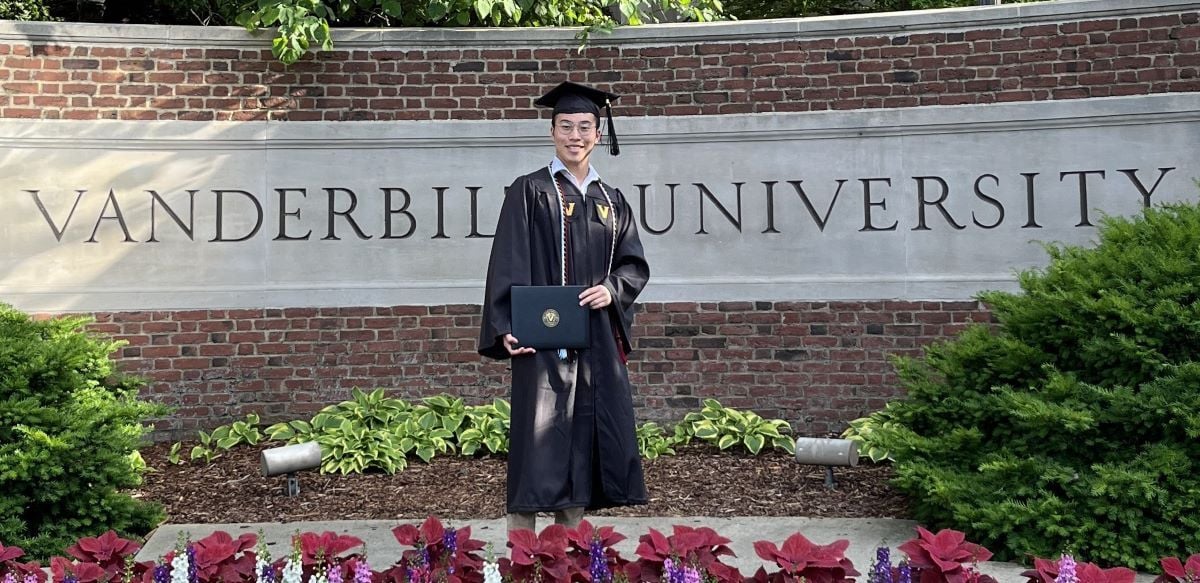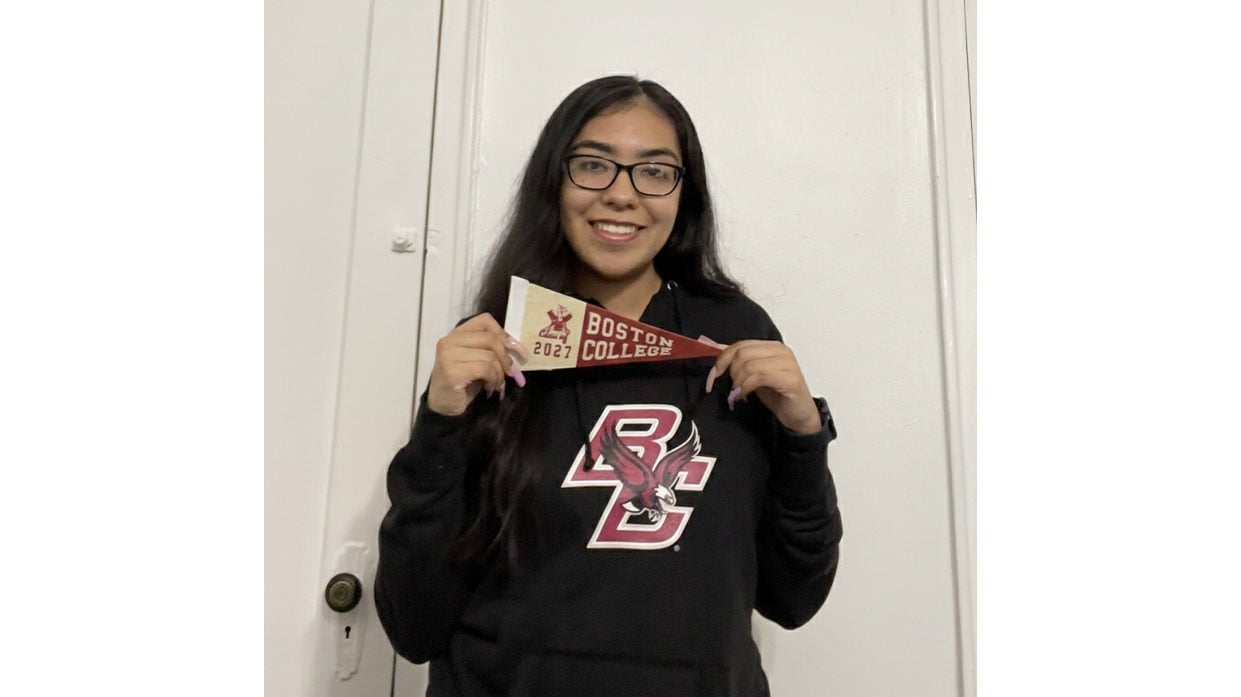Resources / Stories from College
stanley's Update from Vanderbilt

"Learning is not an independent endeavor here; the people you are surrounded by play an important role."
Spread the Knowledge.
A recent graduate of Vanderbilt University shares his views on internships, studying abroad, and succeeding in college.
What was your academic path at Vanderbilt?
I entered Vanderbilt as an English and biochemistry major, but I ultimately graduated with a double major in economics and public policy studies.
What led you to change your major?
In my case, I simply did not enjoy, and did not do well in, my chemistry class freshman year, and the chemistry series is an important gateway course for the biochemistry field and the pre-med curriculum in general.
Giving up the pre-med track left me at a standstill as a freshman and unsure about where to go from there. I ultimately decided on public policy because it consolidated my interests in history and political science and allowed me to develop technical skills such as quantitative analysis. I took up economics as my second major precisely because I fell in love with the empirical side of policy and felt it was a suitable supplement to my main field of study. I’m now a prospective law student, planning to study the intersection of law and policy.
What should students know about academics at Vanderbilt?
Vanderbilt is somewhat unlike other schools in that you do not declare your degree program until sophomore year. In addition, there is a set liberal arts curriculum (called AXLE) that all students in the Colleges of Arts and Science must complete in addition to their major requirements to be eligible for graduation. This was a surprise to me; however, I found the diverse curriculum to be super helpful in informing what I wanted to study. I encourage those who are set to matriculate at Vanderbilt to spend that first year wisely and take classes that truly interest you. These classes are not meant to "weed" you out; they are there to invigorate your intellectual curiosity in a low-stakes environment.
How was your academic workload?
My workload during my senior year was probably the heaviest compared to the previous three years. My fourth year was intense due to research. Across both semesters, I was completing my honors thesis for the public policy major as well as two other independent research projects advised by my favorite professors, which I hoped to submit for publication at an undergraduate journal.
In addition, I had not completed my elective classes for both the economics and public policy programs, which meant I had to maximize my senior year to accommodate my degree requirements. Even though it was challenging, I thoroughly enjoyed that intensity and still found it invigorating.
How would you describe the academic climate at Vanderbilt – competitive or collaborative?
I’d say collaborative with a healthy dose of competition. Learning is not an independent endeavor here; the people you are surrounded by play an important role. If you put in the effort to be proactive in your education, Vanderbilt will be a great place for you. For example, taking the initiative to create class group chats and form study groups, you’ll find that you’ll improve both the educational experience for you and your classmates, and your classmates will reciprocate that gesture.
Did you study abroad?
I opted not to study abroad due to practical reasons. I wanted to continue to participate in the research lab on campus and studying abroad would have made my participation more complicated. I also wanted to take more on-campus classes taught by my favorite professors. I felt that the additional mentorship and instruction gained under these professors ultimately outweighed the benefits of studying abroad. I also think the study abroad experience can be much better if you do it with people who you know. As one friend mentioned, “I do not want to pay tuition just to be lonely.”
How well did Vanderbilt support you in finding internships, research experiences or jobs?
Work experience and research is heavily emphasized at Vanderbilt, both institutionally and socially. Every year, significant resources are dedicated to showcasing and funding undergraduate research. There are also student organizations like the Vanderbilt Undergraduate Research Journal whose mission is to publish novel and insightful student research. There are also several student-led professional societies and groups that teach members how to prepare for job opportunities, such as case interview prep and formulating cover letters.
As a prospective law student, I worked closely with the pre-law advisor at my university’s career center. She was wonderful and I am grateful that Vanderbilt dedicates resources to support students pursuing careers in the legal field. Career services also offers appointments where students can get their resume edited and polish their interview skills.
What were some of your internship/research experiences?
My internships varied widely, spanning across a stint on Capitol Hill with the US House of Representatives, working with non-profits such as the United Way, being a research assistant at an on-campus lab, and a summer consulting role working on technology implementation. I relied on a variety of on-campus and off-campus resources to "source" these opportunities, such as Handshake, LinkedIn, and Indeed. However, I came across some of my others internships or roles through friends and professors who needed an additional pair of hands for a semester or two!
I knew early on that being successful in the policy space — whether as an analyst in a government bureau, a researcher at a think tank, or a public interest lawyer — requires experience working with stakeholders of all backgrounds, including in public and private sectors. These experiences have helped me better understand pressing issues in the technology, social, and international policy spaces and have sparked interests in new ones, including health policy.
What’s your advice for landing an internship and succeeding once you get one?
- It’s never too early to start finding internships or jobs! Simply start investigating what roles you may be interested in, what firms or organizations are exciting to you, and which positions are potentially available, and find the approximate application deadlines based on past deadlines for that internship role. Having these roles listed in a spreadsheet can be a very helpful visual aid.
- Going into your first day on the job, try to embrace all the aspects of being resourceful. Meet your project team members and understand their roles. Don’t be afraid to use a wide array of resources — including AI! — to find answers to questions and to understand how your own role fits into the broader mission of your organization or firm.
- Do not view your internship as a short-term arrangement. While it is delimited by a start date and end date, the takeaways from your internship should have a long-term influence. Over the course of a few weeks or months, actively consider how the new things you have learned can inform your future aspirations and goals, whether they are academic or professional in nature. Most importantly, consider your colleagues and mentors as contacts you’ll have throughout your professional career, not just for the summer — or whatever season. They can prove to be your best cheerleaders or recommenders.
What are your plans now that you’ve graduated?
My original intention was to take a gap year to work full-time while preparing to apply to law school. After graduation I was slated to work in government consulting, implementing technology projects in Washington D.C., but due to some unforeseen family circumstances, I had to move back home to work at the family business full time. It was a roller coaster for a while but moving back home gave me an opportunity to put my best effort into my law school applications without worrying too much about how to pay my rent.
What’s your advice for how to succeed in college?
I recommend that during the summer before the first semester of college, incoming freshmen should spend some time reflecting and evaluating how they approach their studies. The rigorousness of a college education is unparalleled to that of high school. YouTube is a great platform where you can learn from college influencers who share the tools and resources that they think are helpful. Remember that everyone learns differently. For instance, do you prefer downloading lecture slides ahead of time and transcribing them on your tablet during lecture? Or do you prefer to pull up a Google Doc?
What will you remember most about attending Vanderbilt?
I will remember the people whose enthusiasm for their passion served as an inspiration for me to pursue my own. While there were ups and downs, I will always cherish the collaborative team projects conducted with other students both inside and outside of the classroom. My experience at Vanderbilt firmly captures the essence of what a Vanderbilt education means—namely a commitment to service through personal growth.
How did CollegeData help you on your road to college?
I found CollegeData helpful in providing a better understanding of which schools best suit one’s academic, social, and professional aspirations. I love that CollegeData takes an authentic and interpersonal approach by going beyond college statistics and highlighting the lived experiences of current college students. I encourage college applicants to give those stories a read.



